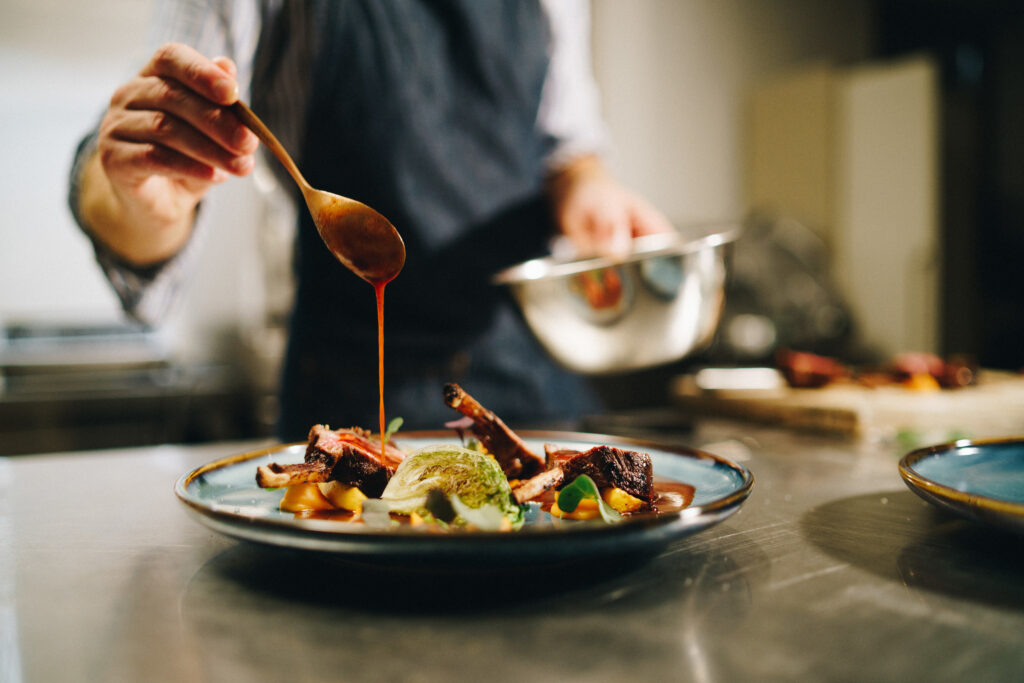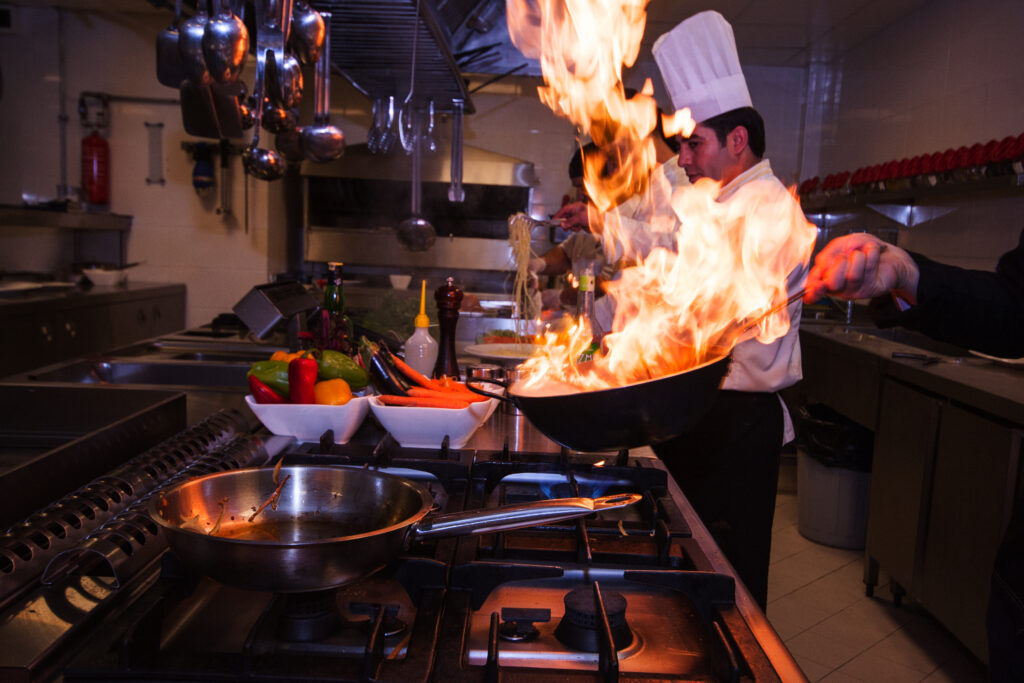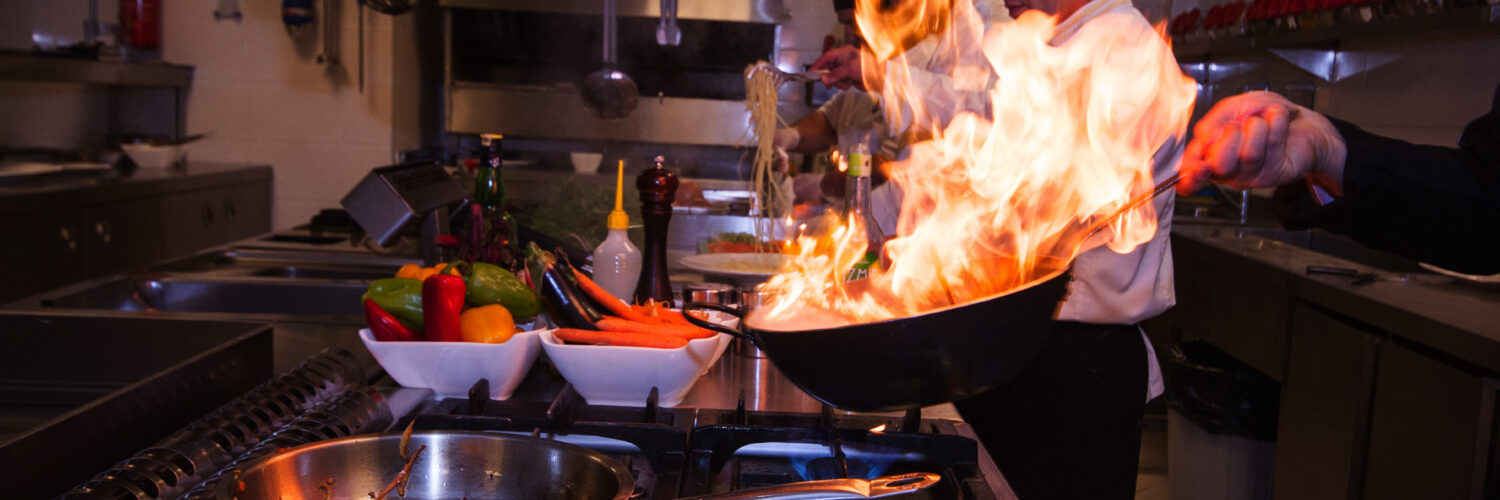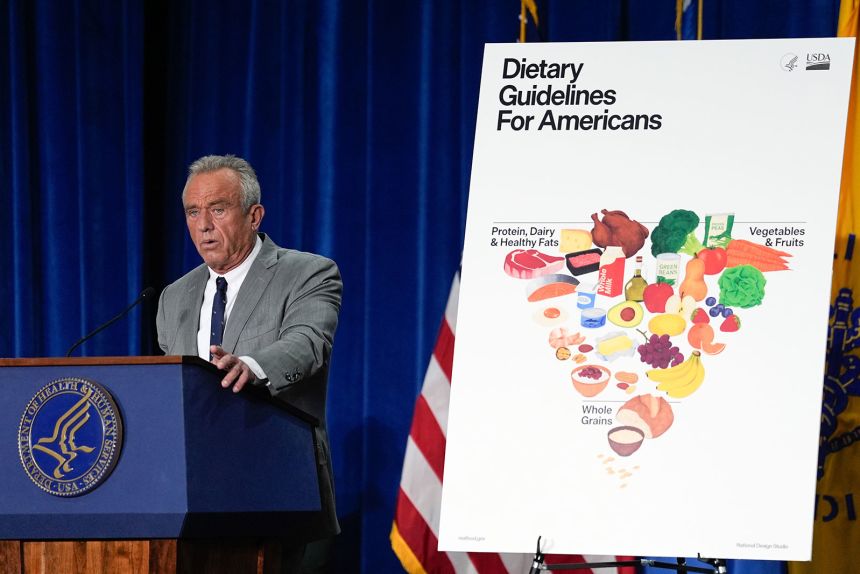The Sunshine State’s culinary scene is a kaleidoscope of flavors, aromas, and experiences, drawing in locals and tourists alike. From quaint seaside bistros serving fresh catches to bustling downtown establishments offering innovative gastronomy, Florida’s restaurants are the heartbeats of their communities. Yet, this dynamic industry operates within a landscape of inherent uncertainties. The capricious nature of weather, the ever-present risk of equipment malfunctions, and the potential for unforeseen external events can abruptly halt operations, leaving owners grappling with significant financial repercussions. Business interruption insurance emerges not just as a safety net, but as a fundamental pillar of resilience, a crucial ingredient that ensures the long-term viability and prosperity of Florida’s cherished restaurants.

Unpacking the Layers: A Comprehensive Examination of Business Interruption Insurance
Business interruption insurance transcends the mere coverage of physical damages; it delves into the intricate financial ecosystem of a restaurant, acknowledging the cascading effects of a temporary closure. It’s a recognition that when the doors are shuttered due to a covered peril, the financial implications extend far beyond the cost of repairs. It’s about preserving the financial health and future of the establishment.
A Granular View of Coverage Components:
- The Lifeblood: Lost Net Income (Profit): At the heart of business interruption coverage lies the protection of a restaurant’s profitability. This isn’t simply about replacing lost sales; it’s about compensating for the net profit the business would have reasonably earned had the disruptive event not occurred. Insurers meticulously analyze historical financial data, scrutinizing revenue streams, cost of goods sold, and operating expenses to project this lost income. Factors such as seasonality, special events, and recent growth trajectories are carefully considered to arrive at an accurate assessment. Comprehensive and meticulously maintained financial records are the bedrock upon which these claims are substantiated.
- The Unwavering Obligations: Continuing Fixed Operating Expenses: Even in the stillness of a temporarily closed restaurant, a multitude of financial obligations persist. Rent or mortgage payments remain due, loan installments cannot be paused, essential utilities like electricity, gas, and water continue to accrue charges, and retaining skilled staff often necessitates the continuation of salary payments to prevent the loss of valuable human capital. Business interruption insurance acts as a crucial buffer, ensuring that these unavoidable fixed costs are covered during the downtime, preventing further financial hemorrhage and facilitating a smoother return to operations.
- The Bridge to Recovery: Temporary Relocation and Operation Expenses: In certain circumstances, the entrepreneurial spirit and the need to maintain some level of service might drive a restaurant owner to explore temporary operating locations while their primary premises undergo repairs. Business interruption coverage can provide the financial means to facilitate this transition, covering expenses such as the rental of temporary space, the cost of setting up essential utilities, the transportation of equipment and supplies, and even temporary signage to inform customers of the alternate location. This proactive approach can help retain customer loyalty and minimize the overall disruption.
- The Catalyst for Reopening: Extra Expenses (Loss Mitigation): The desire to expedite the return to normalcy often necessitates incurring additional expenses beyond the typical operating costs. This might include paying overtime wages to accelerate repairs, renting temporary specialized equipment, or launching targeted marketing campaigns to announce the reopening and reassure customers. Some business interruption policies recognize the value of these “extra expenses” in mitigating the overall financial impact of the closure and provide coverage for these prudent expenditures.

Navigating the Intricacies of Policy Provisions:
- The Genesis of Coverage: The Covered Peril: Business interruption insurance is intrinsically linked to the underlying commercial property insurance policy. It is triggered by a direct physical loss or damage to the insured property caused by a covered peril. Common covered perils encompass events such as fire, lightning strikes, windstorms, hail, explosions, acts of vandalism, and, in some instances, specific types of water damage. A thorough understanding of the covered perils in both policies is paramount to ascertain the scope of protection.
- The Boundaries of Protection: Exclusions: Just as understanding what is covered is crucial, so too is recognizing the limitations of the policy. Standard business interruption policies typically exclude losses arising from events like floods (necessitating separate flood insurance), earthquakes (requiring dedicated earthquake coverage), power outages originating off the insured premises (unless a specific endorsement is in place), and, notably, business disruptions caused by pandemics or communicable diseases (although specialized endorsements may exist in some cases). Furthermore, losses stemming from gradual wear and tear, pest infestations, or faulty workmanship are generally not covered.
- The Timeline for Recovery: The Indemnity or Restoration Period: The policy explicitly defines the period during which business interruption coverage will apply. This “indemnity period” or “restoration period” typically commences after the physical damage occurs and extends until the restaurant can reasonably resume its normal business operations, subject to the policy’s maximum time limit or financial cap. A careful assessment of the potential duration of repairs and the time needed to rebuild customer traffic is essential when determining an adequate indemnity period.
- The Framework of Coverage: Policy Limits and Coinsurance Clauses: Like all insurance instruments, business interruption coverage is subject to financial limits, representing the maximum amount the insurer will pay for a covered loss. Restaurant owners must meticulously evaluate their potential lost income and continuing expenses to establish appropriate coverage limits. Additionally, some policies may incorporate a “coinsurance” clause, which mandates that the insured carry a certain percentage of the total insurable value of the business to avoid potential penalties in the event of a partial loss.
The Florida Factor: Tailoring Protection to a Unique Environment
Florida’s distinctive geographical characteristics and economic activities introduce specific risks that restaurant owners must proactively address when structuring their business interruption insurance:
- The Specter of Hurricanes and Tropical Storms: The annual hurricane season casts a long shadow over Florida businesses. High-velocity winds, torrential rainfall, and devastating storm surges can inflict significant property damage and lead to protracted power outages, inevitably forcing restaurants to temporarily cease operations. Business interruption insurance becomes an indispensable shield in these scenarios, providing crucial financial support to cover lost revenue and ongoing expenses during mandatory evacuations and the subsequent recovery phase.
- The Threat of Flooding: While standard commercial property insurance policies often exclude flood damage, restaurants situated in flood-prone areas face a heightened risk. These establishments should strongly consider purchasing separate flood insurance coverage and ensuring that their business interruption policy aligns seamlessly with potential flood-related closures, recognizing the extended downtime that flood damage can often entail.
- The Fragility of Power Supply: Florida’s vulnerability to severe weather events can translate into widespread and prolonged power outages. These disruptions not only halt immediate operations but also lead to the spoilage of valuable perishable food inventory, compounding the financial losses. While business interruption insurance addresses lost income, supplemental spoilage endorsements can provide specific coverage for the financial loss associated with condemned food items.
- The Unforeseen: Equipment Breakdown: The smooth functioning of a commercial kitchen hinges on a complex array of specialized equipment, from industrial ovens and refrigeration units to sophisticated point-of-sale systems. Unexpected breakdowns can lead to significant operational disruptions and potential revenue loss. While standard business interruption policies typically do not cover losses solely due to equipment failure, dedicated equipment breakdown coverage can provide protection for the costs of repairing or replacing damaged equipment and the resulting income loss.
- The Authority to Close: Civil Authority Shutdowns: In certain extraordinary circumstances, governmental authorities may mandate the temporary closure of businesses due to events such as impending hurricanes, public health emergencies, or civil unrest. Business interruption policies may offer coverage for the financial losses incurred during such mandatory shutdowns, but the specific triggers and limitations of this coverage should be carefully scrutinized and understood.
Strategic Imperatives for Florida Restaurant Owners:
- A Meticulous Risk Landscape Assessment: Conduct a thorough evaluation of the specific risks that your restaurant faces, taking into account its geographical location, the nature of its operations, and its reliance on external factors such as tourism or seasonal fluctuations in business.
- Precise Income Forecasting: Collaborate closely with your insurance broker to develop an accurate projection of potential lost income, factoring in seasonal peaks, anticipated growth, and any upcoming special events that could significantly impact revenue. Underinsuring your business interruption coverage can leave you severely vulnerable during an extended closure.
- The Power of Endorsements: Explore the availability of policy endorsements that specifically address Florida’s unique risk profile. This might include extended business income coverage (which continues to cover losses even after reopening until business returns to pre-loss levels), contingent business interruption coverage (which protects against disruptions to key suppliers), and coverage for utility service interruption.
- Synergistic Policy Alignment: Ensure that your business interruption coverage works in harmony with your commercial property, flood, and other relevant insurance policies, eliminating potential gaps in protection and ensuring a comprehensive safety net.

Navigating the Claims Journey: A Guide to Recovery
Filing a business interruption claim can be a complex and demanding process, underscoring the importance of meticulous preparation, comprehensive documentation, and a clear understanding of your policy obligations:
- Prompt and Precise Notification: As soon as a covered event occurs that necessitates the temporary closure of your restaurant, it is imperative to notify your insurance provider immediately. Timely reporting is a fundamental requirement of most policies and can significantly expedite the claims process.
- The Cornerstone of Evidence: Detailed Documentation: The success of a business interruption claim hinges on the strength and completeness of your documentation. This should include:
- Comprehensive Financial Records: Profit and loss statements, balance sheets, tax returns, and detailed sales records for a significant period preceding the loss.
- Meticulous Expense Tracking: Thorough documentation of all continuing fixed expenses incurred during the period of closure, such as rent receipts, utility bills, loan statements, and payroll records.
- Repair and Replacement Documentation: Detailed estimates and invoices for any costs incurred to repair the physical damage to your restaurant property.
- Temporary Relocation Expenses: Receipts and invoices for any costs associated with operating from a temporary location.
- Loss Mitigation Expenses: Records of any additional costs incurred to minimize the disruption and facilitate a faster reopening.
- Visual Evidence: Photographic and video documentation of the damage to your property and the impact on your business operations.
- Collaborative Engagement: Working with the Adjuster: An insurance adjuster will be assigned to your claim to investigate the loss and assess the damages. It is crucial to cooperate fully with the adjuster, providing all requested information and documentation in a timely and organized manner.
- Policy Mastery: Understanding Your Coverage: A thorough understanding of the terms, conditions, coverage limits, deductible, and specific claim filing requirements outlined in your business interruption policy is essential for navigating the claims process effectively.
- Seeking Expert Guidance: Professional Assistance: For complex or substantial business interruption losses, consider engaging the services of a public adjuster or legal counsel specializing in insurance claims. These professionals can provide invaluable assistance in navigating the intricacies of the claims process and advocating for your best interests.
The Strategic Advantage: The Business Owners Policy (BOP) for Florida Restaurants
For many small to medium-sized restaurants in Florida, a Business Owners Policy (BOP) offers a streamlined and often more economical approach to securing fundamental insurance protection. By bundling essential coverages such as general liability, commercial property, and business interruption insurance into a single policy, a BOP simplifies the insurance procurement process and can provide comprehensive coverage against a wide spectrum of common risks encountered in the restaurant industry.

Highlighting Essential Insurance Services for Florida’s Culinary Sector:
When engaging with Florida restaurant owners regarding their insurance needs, it is crucial to emphasize the importance of the following key coverages:
- General Liability Insurance: Provides vital protection against third-party claims of bodily injury or property damage that may occur on your restaurant premises or as a result of your operations, such as slip-and-fall incidents or claims of foodborne illness.
- Employment Practices Liability Insurance (EPLI): Offers crucial coverage against claims from employees alleging wrongful termination, discrimination, harassment, or other employment-related issues, a significant consideration in the labor-intensive restaurant industry.
- Workers’ Compensation Insurance: As mandated by Florida law for businesses exceeding a certain number of employees, workers’ compensation insurance provides coverage for medical expenses and lost wages for employees who sustain work-related injuries or illnesses.
- Business Owners Policy (BOP): A convenient and often cost-effective package policy specifically designed for smaller businesses, typically encompassing general liability, commercial property, and business interruption coverage.
- Restaurant Business Insurance: A broad category encompassing a range of specialized insurance products tailored to address the unique risks faced by restaurants, including liquor liability insurance, food contamination coverage, and equipment breakdown insurance.
- Business Food Insurance (Food Contamination Insurance): Provides specific coverage for financial losses resulting from the contamination of food products, including spoilage, recall expenses, and potential liability claims, a particularly pertinent coverage for restaurants handling perishable goods.
The dynamic yet often unpredictable environment of Florida demands that restaurant owners prioritize comprehensive protection against potential disruptions. Business interruption insurance stands as a critical safeguard, offering financial stability when unforeseen events force temporary closures. By covering lost income, continuing expenses, and even facilitating temporary operations, this coverage acts as a vital lifeline, ensuring the long-term viability of your culinary venture.
Navigating the complexities of restaurant business insurance and tailoring a policy to your specific needs in Florida can be a daunting task. This is where the expertise of a trusted insurance partner becomes invaluable. Commercial Insurance Services (CIS) understands the unique challenges and risks faced by Florida’s restaurant industry. With a deep understanding of the local landscape and a commitment to providing tailored solutions, CIS can help you navigate the intricacies of business interruption insurance and other essential coverages like General Liability, Employment Liability, Workers Compensation, and comprehensive Business Owners Policies.
Restaurant owners shouldn’t leave their business’s future to chance. They can secure peace of mind and ensure the continued success of their Florida restaurant by exploring business interruption insurance options with Commercialize Insurance Services (CIS).
For those ready to protect their restaurant, CIS offers tailored business interruption coverage. Contact CIS today for a quote and expert guidance on how to safeguard a restaurant during challenging times.





